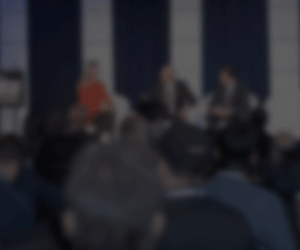Zinger Key Points
- Recent court rulings allowed Kalshi to list election contracts despite CFTC objections, opening the door for regulated election betting.
- Robinhood’s move into political betting follows Kalshi’s regulatory win, intensifying competition in the U.S. prediction market.
- Wall Street veteran Chris Capre is going live April 9 at 6 PM ET to reveal a short-term strategy that just returned 195%—in the middle of a crashing market.
Describing Kalshi's election betting platform as "a coin flip with a bias," CEO Tarek Mansour highlighted the platform's rapid growth, noting it has reached $200 million in trades and overtaken Cash App in U.S. finance app rankings.
What Happened: Speaking on CNBC on Monday, Mansour explained that Kalshi's election markets reflect user-driven probabilities, offering a nuanced perspective distinct from traditional polling data.
He added that these probabilities reflect the collective insights of market participants rather than a reflection of public polls.
Kalshi's election market enables Americans to place bets on the 2024 presidential race, distinguishing itself as one of the few fully regulated U.S.-only platforms in this sector.
Mansour highlighted that Kalshi's platform is designed to bring transparency to the prediction market, particularly when compared to offshore betting platforms.
"We're transparent, Americans-only, fully regulated," Mansour stated, emphasizing Kalshi's compliance focus amidst the rising popularity of election betting.
The popularity of political prediction markets led Robinhood HOOD to introduce election contracts as part of its product expansion.
Robinhood's contracts allow selected U.S. users with advanced investing permissions to wager on presidential election outcomes.
Robinhood's entry into election contracts follows a significant court decision that permitted Kalshi to list such contracts despite the Commodity Futures Trading Commission's (CFTC) opposition, which had previously argued against betting on political events without regulatory oversight.
The ruling not only facilitated Kalshi's rapid growth but also opened doors for other major players to explore this area.
In addition to Robinhood, platforms like Interactive Brokers have added election-related products, pointing to an increasing demand for regulated election markets.
Kalshi's platform offers nearly 100 election-related markets with substantial liquidity, enabling a broad range of betting options that allow participants to invest in various facets of the election cycle.
This positions Kalshi competitively against Robinhood's single-contract approach, which remains limited in scope and payout structure.
According to Mansour, Kalshi's market allows users to place significantly larger bets without influencing market prices, with average wagers at around $300 to $400.
"You can take millions easily without moving the price," Mansour noted, underlining Kalshi's flexibility and liquidity compared to other platforms.

Also Read: Is Bitcoin’s ‘Trump Trade’ Still Valid? It’s Complicated But Watch These Two Data Points
Kalshi's election odds currently place Donald Trump in the lead at approximately 62%, with more individual bets supporting Trump, although the average amount per bet favors Vice President Kamala Harris.
This data reflects the diverse participation in election prediction markets and highlights Kalshi's ability to attract participants with varying betting strategies.
Mansour pointed out that these odds shouldn't be mistaken for polling data. He clarified, "A 40% chance of winning is not 0%," indicating that these markets account for nuanced possibilities in election outcomes rather than a clear prediction.
Beyond election betting, Mansour envisions prediction markets as an emerging "source of truth" for public interest topics, from Fed rate decisions to CEO appointments.
He explained that the election is often a "holy grail event" that propels prediction markets into mainstream relevance, setting the foundation for their use in broader scenarios.
The data-driven nature of these markets allows users to gauge the probability of various events, adding a new layer of insight to public and financial discussions.
Mansour also addressed the potential for prediction markets to influence real-world outcomes, much like interest rate swaps that reflect expectations and sometimes shape Federal Reserve decisions.
"The Fed's decisions are often gauged by interest rate swaps," he noted, adding that markets like Kalshi can offer similar predictive power.
However, Mansour emphasized that prediction markets aren't necessarily self-fulfilling prophecies but can provide meaningful data points that inform both public perception and institutional decisions.
What’s Next: As election day nears, the future of prediction markets and their role in shaping public opinion will be a major discussion point at the Benzinga Future of Digital Assets event on Nov. 19.
Read Next:
Image: Shutterstock
Edge Rankings
Price Trend
© 2025 Benzinga.com. Benzinga does not provide investment advice. All rights reserved.
Trade confidently with insights and alerts from analyst ratings, free reports and breaking news that affects the stocks you care about.